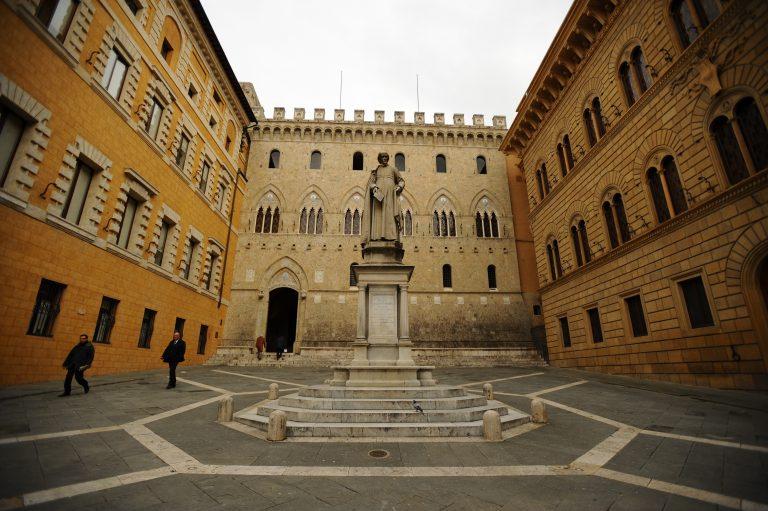
Whilst Italian banks may be having a rough time at the moment, one in particular is on the brink of collapse: the 500 year old Monte dei Paschi di Siena bank, currently caught in the throes of a possible private rescue.
Like most Italian banks, MPS is struggling under the weight of millions of Non-Performing Loans and recently received the worst score in the most recent European Banking Authority stress tests. Despite Prime Minister’s assertions that the Italian banks are “good”, the share price of MPS has plummeted, falling from €90 to 26 cents alongside slashing dividends. Renzi may still think that Monte dei Paschi “could be a very good bank for the future”, but it is in major need of a €5 billion recapitalisation for the third time in three years, as well as a clean-up of its €27 billion worth of non-performing loans.
Renzi has spoken out strongly against a bail-in, whereby banks existing shareholders would take the hit, on the grounds that this would hit thousands of family savers. Bailing out the bank with taxpayer money would be another unpopular option for the centre-left Prime Minister, whose leadership depends on winning a referendum on the constitution, to be held in October.
However last week, MPS came up with a third option: a private sector-backed bailout. Despite the bank being worth under 1 billion euros on the market, the rescue scheme hinges on raising 5 billion to prop up the bank before the end of year. So far, the plan has gained traction; the global coordinators for the cash call, JPMorgan and Mediobanca, have secured a pre-underwriting agreement from another six other banks, including Santander, Goldman Sachs and Credit Suisse. However, MPS still has to negotiate the sale of 9.2 billion euros of bad loans through an unprecedented securitization. Drawing on the size of the task ahead several other banks have, perhaps not unreasonably, chosen to opt out.
LC Macro Chief Economist Lorenzo Codogno, a former chief economist at the Italian treasury, told Reuters: “Italy is on a good course to solve its banking issues. However, leaving aside some near-term re-pricing of risk, this is not yet a turning point.”
Miranda Wadham on 05/08/2016
